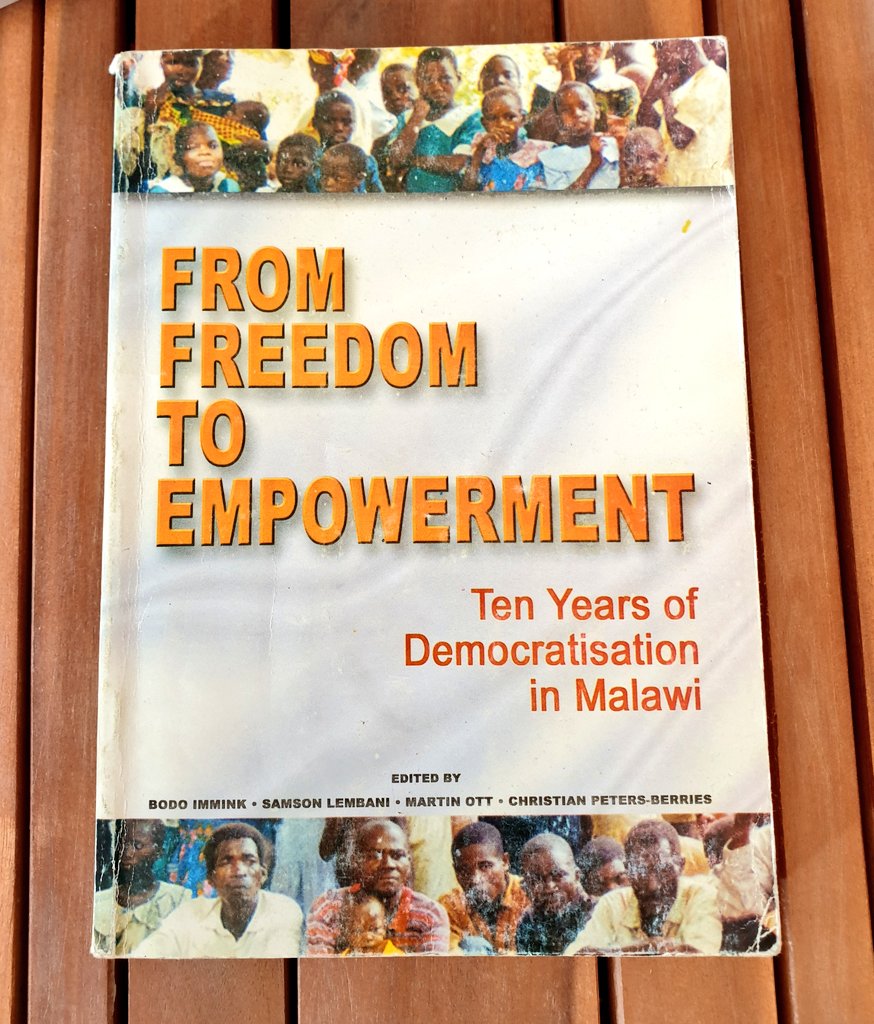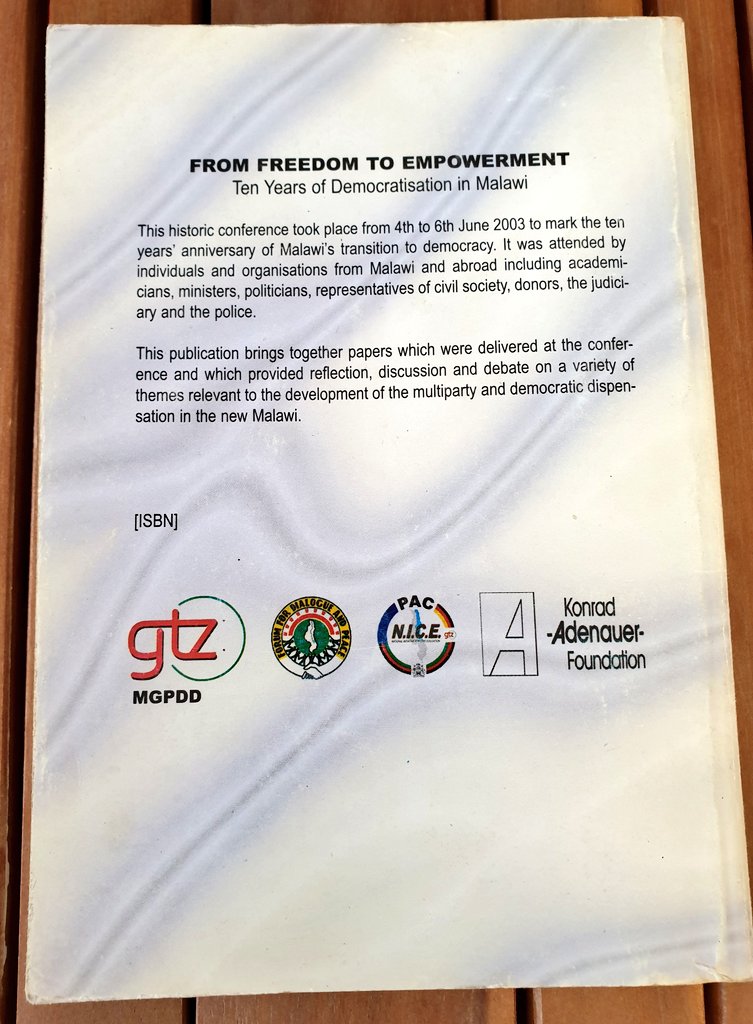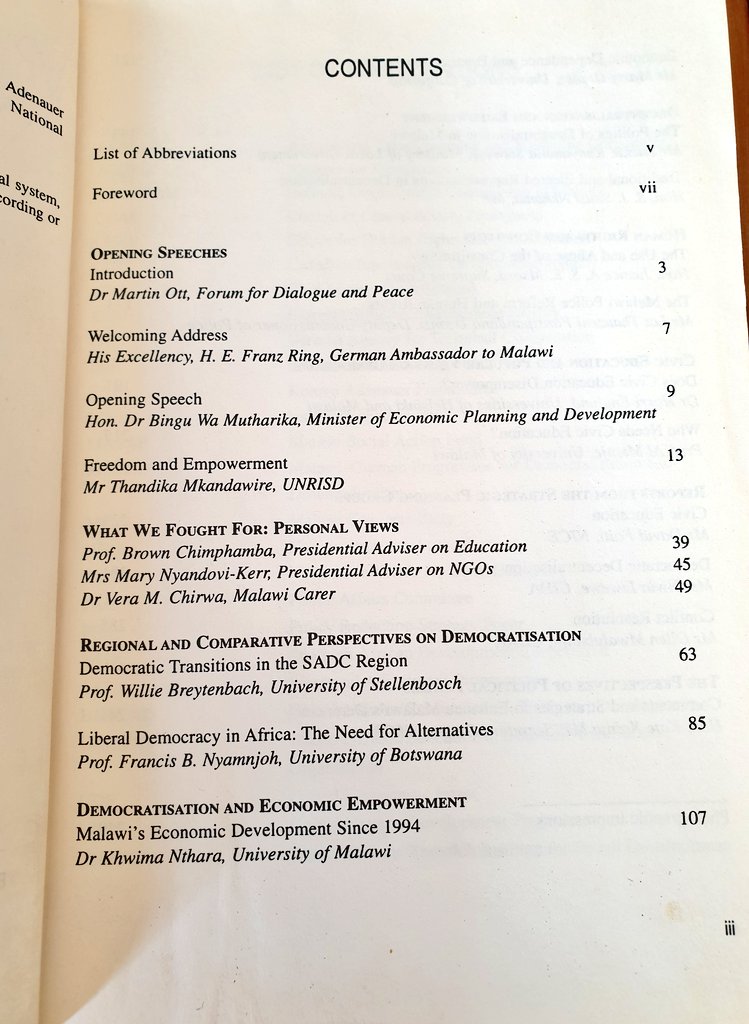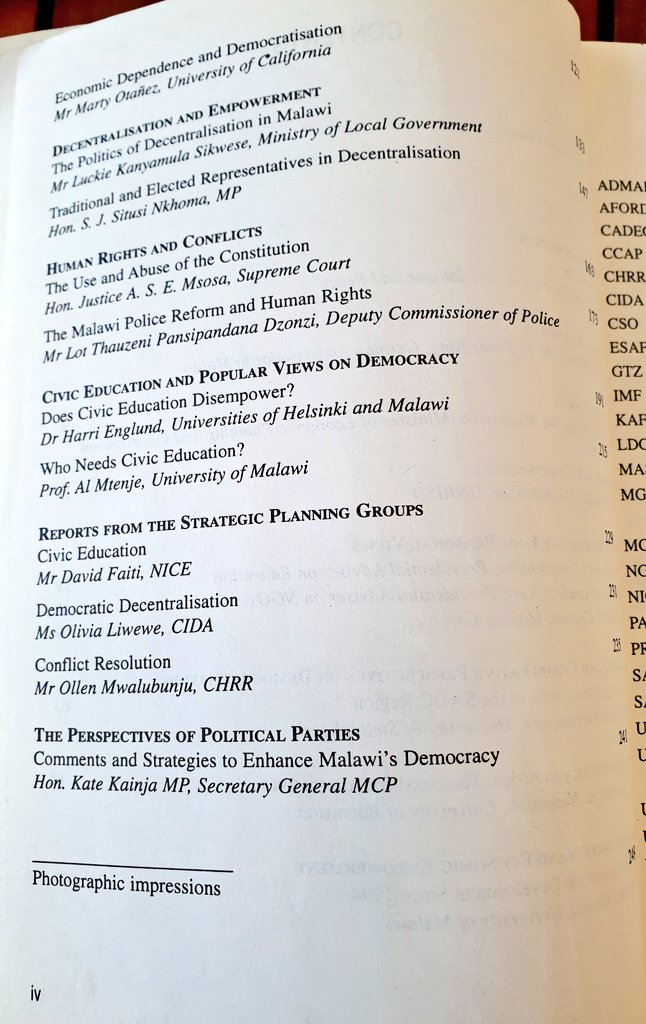In all these years, the only constant has been the resolve of Malawians (at various intervals) to rise up and defend institutions of Democracy. These institutions, at critical moments, have listened.
When he could finally go back, in 1994, it was out of hope for better things to come.
But there was something in the air, and it was FREEDOM.
Mutare-->Harare-->Nyamapanda-->Cuchamano-->Tete-->Zobue-->Mwanza-->Lilongwe and later, Blantyre.
Again, there was a lot of hope prevailing, from what I saw.
I recall a few of the conversations we had about this; what was being said, the ideas that were being articulated etc. Again, hope...
Starting from about 1999 & eventually collapsing in 2002, Muluzi's attempt was an early test.
Yet, what he wanted for himself, the institutions in #Malawi did not want for the country.
I remember some of the news headlines & sadly, I also remember the violence, as the nation turned on itself.💔
1) "Ayimanso" (he will stand again);
2) "Sayimanso" (he won't stand again).
It was a battle fought in the courts, parliament and the streets.
With the backing of State power, the Ayimanso camp unleashed violence with impunity.
Machetes. Sticks. Stones. Blood on the streets...Why?
Hence, he pushed and pushed for an unconstitutional 3rd term in office but the institutions held out.
Lessons.
He is correct.
We had the generation that stood against colonialism, and won. The one that stood against Kamuzu and won, with many paying with their lives.
We also have those who stood against Muluzi's 3rd Term bid, and won. History will write the names of judges, lawyers and political scientists etc. It must not forget THE PEOPLE.
The 2004 election was, again, a test for Malawi.
But Muluzi still thought he could have his 3rd Term, via the backdoor. Bingu wouldn't let him.
In the ensuing chaos, 9-year old Epiphania Bonjesi was shot dead by Malawi Police. She was sitting on the verandah.
But the damage had been done. Epiphania is gone, forever.
But he too, like Kamuzu and Muluzi before him, was resisted.
He didn't listen.
He couldn't be bothered to express remorse, let alone address the issues afflicting Malawians.
Even though this move was met with some internal resistance, Bingu had his way.
Save to say, it was again #Malawi's institutions of Democracy that stood firm and protected the integrity of our democratic aspirations as a nation.
But she too, like Bakili & Bingu before her, made mistakes...
What then transpired will need more in-depth historical reflection. #Malawi was, yet again, on the brink.
This isn't to say they were not threatened, or that they didn't come under attack. They did, fiercely so. But they managed to hold and resist the attacks.
Fast forward to 2019. Another election year.
Yesterday, the Supreme Court upheld the view that these elections were null & void. No surprises...
In hailing #Malawi's courts, do not forget THE PEOPLE.
It's a long way back to 1994. An even longer way back to 1964, when we became an independent nation. So much time has passed...
#Malawi has one of the youngest populations in the world; at least 50% of the population is under 18. It is for them, we must develop plans with tangible results.
It's no longer business as usual in #Malawi. Once again...HOPE.




That young people are used as agents of terror is truly regrettable. We should do better.
A lot of young people in #Malawi are behind the electoral ouster of incumbent, president Peter Mutharika. This victory - a clear political statement - is theirs.
The next few days are going to be telling. The real drama will start unfolding.
1) the state of political parties in #Malawi (esp. Intra-Party Democracy);
2) Further strengthening of democratic institutions (electoral commission, judiciary, army, police, media etc.);
3) Economic & Social Policy;
4) Popular Agency
This is the most immediate challenge facing Chakwera.
Led, as it is, by a Christian in Rev. Chakwera, we are going to see forms of religious fundamentalism
The work of holding these institutions accountable has been constant, unrelenting and patriotic. This is key.
Where is the problem?
This is what it takes, this is the hard work of ensuring electoral credibility. Patience required.
Through this, we are also witnessing the further strengthening of our Electoral Commission. A huge win.🙌🏿
If anything, one hopes all our national Institutions have gone through some positive transformation and have been strengthened. The same can't be said for the Executive, regrettably.
Yet another missed opportunity.
Good luck!


